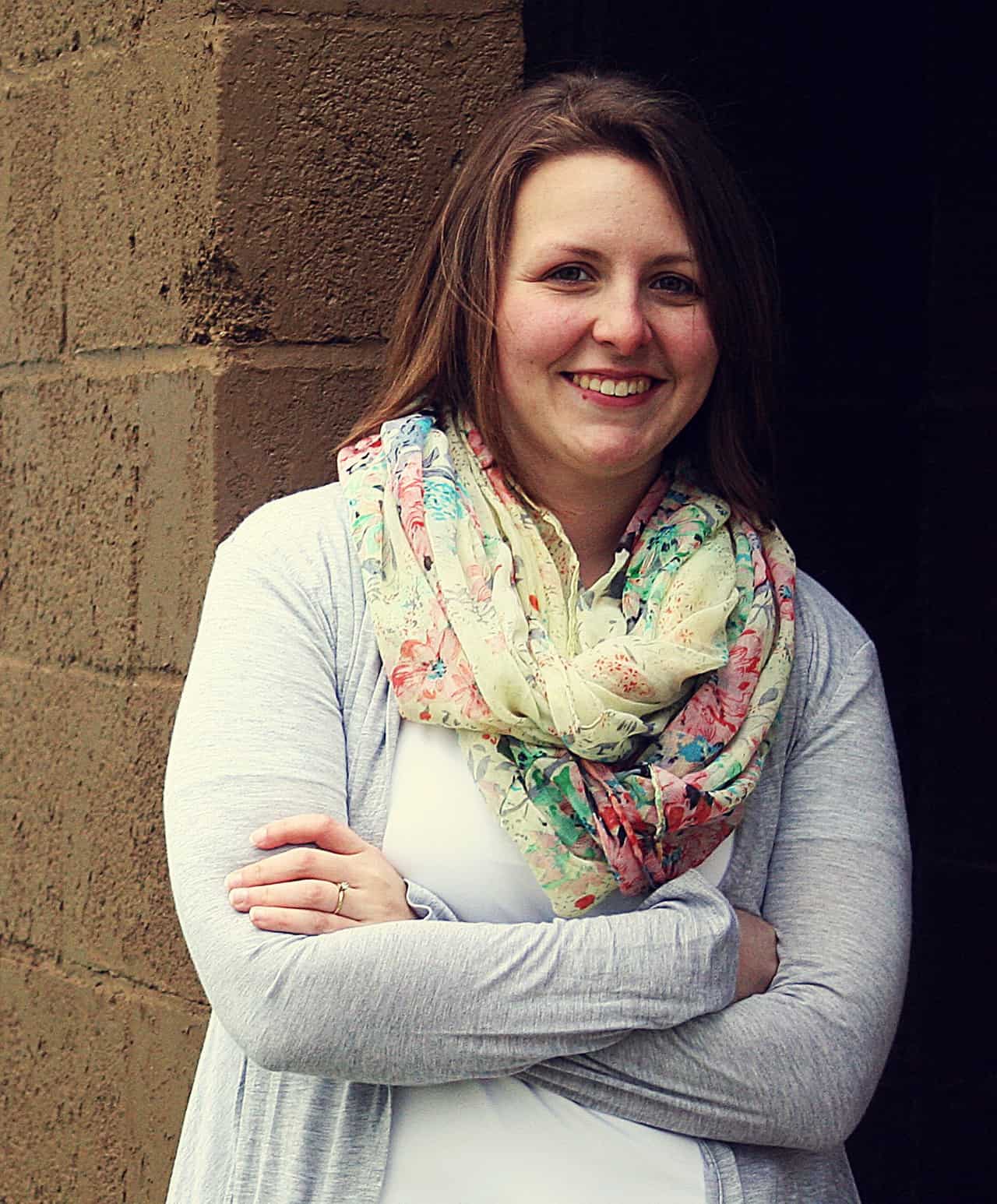How to Become a Bookkeeper With No Experience

If you are here, you may have been researching ways to work from home. Who doesn’t love the idea of working in your comfy clothes in the realm of your own home? I began researching working at home as a bookkeeper a little while ago but then my husband decided to go into business for himself. Lo and behold, he decided to go the bookkeeping route so now I can give you the insider’s scope on what we have learned on our bookkeeping journey. Spoiler, my husband started as a bookkeeper with no experience and you can do the same.
In this post we are going to start with the basics, give you as much information as possible so you can make the best decision for you. If you want to change careers and not bother with the headache of owning your own business, we will tell you at the end where to look for bookkeeping jobs. If you are interested in owning your own bookkeeping business then after you are done reading here, check out How to Start Your Own Bookkeeping Business.
Let’s jump to it!
The information provided on this site is based on my own personal experience and is not to be construed as professional advice. I am not a financial advisor or planner, nor am I a CPA. The contents of this site and the resources provided are for informational and entertainment purposes only and do not constitute financial, accounting, or legal advice. The author is not liable for any losses or damages related to actions or failure to act related to the content on this website.
What does a bookkeeper do?
I know this is basic but I want to make sure we are all on the same page. So bear with me. Bookkeepers record and maintain a business’ financial transactions; the financial ins and outs of the business, money spent, receipts, accounts payable/receivable payroll, and keeps tabs on the business’s financial health.
I love how Xero puts it:
“A bookkeeper is always taking the pulse of a business.” The two foundational tasks in small business bookkeeping are data entry and bank reconciliation.
Xero
The difference between accounting and bookkeeping

I know that some will use these interchangeably and while accountant and bookkeeper duties overlap or share, there are differences that need to be understood. While you don’t need a degree or even certification to be a bookkeeper, you DO need at least certification to become an accountant.
While a bookkeeper records the raw data and can generate monthly reports based on that financial data, an accountant takes it a step further. They analyze and interpret that data providing insight on certain business decisions or the financial projection of the company. There is even a difference between an accountant and a CPA but that is for a different day.
What a bookkeeper does NOT do
This may seem redundant but I want to make sure this is clear because there are potential legal ramifications to working outside your scope. Much like a physician’s assistant, a nurse, an SLPA there are certain tasks and duties that they are responsible for and because of their degree/certification there is a limit and they cannot perform all the duties of a doctor, an SLP, etc. The same applies here with bookkeepers:
Bookkeepers can:
- Enter financial data
- Bank Reconciliation
- Monthly reports based on financial data entered
Can also
- Handle accounts payable and receivable
- Payroll
- End of the year reporting: balance sheets and statements
Bookkeepers cannot
- Analyze and/or interpret financial data
- Represent the business to the IRS
- Sign tax returns
- Represent the company during a tax audit
What skills are needed to become a bookkeeper
These skills aren’t necessarily education-based but are things that you can definitely learn if they aren’t your strengths. Obviously, this isn’t the big list of bookkeeper attributes however I feel like if you have these skills or are a little in a few and work to strengthen them, you will be a bookkeeper that stands out. Skills and attributes such as:
- Attention to detail
- Be able to communicate well with others
- Problem-solving and critical thinking
- Integrity, honesty, and transparency
- Flexibility to adapt to different businesses and software
- Willingness to continue learning and educating yourself so you stay up to date
- Organized, disciplined, and committed
I won’t go into detail on each because I feel like they are fairly straightforward. I added integrity, honesty, and transparency because when you are working with someone else’s finances, they are trusting you with a vitally important part of their business. Being honest and upfront with them will help you gain their trust and put any worries at ease. There is also the added benefit of referrals from being an exceptional bookkeeper.

Can bookkeeping be self-taught
In a way yes, I believe so. Depending on how driven you are to succeed and what tools and resources you use, are your resources from reputable sources or high-quality content? Also seeking out opportunities to train under a mentor or an internship to gain experience. Experience is key.
Resources for bookkeeping

Are you are interested in pursuing bookkeeping but you are on the fence or you want to get your feet wet but don’t have the funds to invest in education or courses? Check out some of these resources, I believe these are all great tools to utilize:
- Learn accounting for free: Accounting Coach
- Free Bookkeeping Facebook groups such as Bookkeeping Side Hustle Group, Have Your Cake And Eat It Too, and Bookkeep Anywhere as well as any local bookkeeping/business groups in your area
- Quickbooks has training and videos to help individuals learn bookkeeping using their software as well as Xero. There are other accounting software companies but these are the main two, with Quickbooks dominating the field for now.
- Youtube, search for bookkeeping how-tos, terminology, etc. I would caution you to double-check the info and don’t watch too much at once or your head might explode.
Can you become a bookkeeper without a degree?
For sure! Remember you limited in the scope of services that you can provide with more education or certification. So just be aware of legally what you are allowed to offer and what you can’t but remember every business needs a bookkeeper, there is a definite need in this field. Even though you are “limited” you will still provide a much-needed service to your clients and their businesses You can be very successful as a bookkeeper without a degree. If you don’t have the degree then work on gaining as much experience as possible. There are plenty of resources available to you to do so.
Check out what the U.S Bureau of Labor Statistics says on how to become a bookkeeper:
Employers generally require bookkeeping, accounting, and auditing clerks to have some postsecondary education, particularly coursework in accounting. However, some candidates can be hired with just a high school diploma.
Bookkeeping, accounting, and auditing clerks usually get on-the-job training. Under the guidance of a supervisor or another experienced employee, new clerks learn how to do their tasks, such as double-entry bookkeeping. In double-entry bookkeeping, each transaction is entered twice, once as a debit (cost) and once as a credit (income), to ensure that all accounts are balanced.
Some formal classroom training also may be necessary, such as training in specialized computer software. This on-the-job training typically takes around 6 months.
U.S Bureau of Labor Statistics
What sort of certifications and licenses are available?

Like we touched on in the section above, you don’t need a degree to work as a bookkeeper. On the flip side of that, having some sort of licensing or certification gives you some credibility. Then the question becomes what is available to you?
Quickbooks Proadvisor Program
Quickbooks offers training and videos for you to learn their accounting software. After you go through the training, you take a certification test. You get three tries to pass the test (you need 80% in each of the 6 sections). Should you fail after three tries then you have to wait 60 days to be able to try again. This test can bring people down but utilize other people’s experiences as well as encouragement to keep going.
Bookkeeping Side Hustle has some great pointers to help pass the test. Look out for other groups that could be helpful with tips and helps. Margie Remmers from Fast and Easy QBO offers tools to help you pass the test. Her course isn’t free but you are welcome to take a look and see if taking her course would be worth it to you.
Xero Certification
I don’t have personal experience with Xero yet. I have used Quickbooks for years however I have heard great things about Xero from those bookkeepers that use it and claim they have a great customer service department. Simple and easy to use. It’s another accounting software that you can offer to your clients and integrates well with other systems.
Other Certification possibilities
Most community colleges and universities have bookkeeping programs, check out your local colleges for more information.
Accrediting agencies such as the National Association of Certified Public Bookkeepers and the American Institute of Professional Bookkeepers offer certification and licensing.
Is it hard to be a bookkeeper?
No… and yes. I put yes just because if you have no prior experience then it might take some time to learn the basics, the terminology, and get somewhat comfortable with doing bookkeeping. It’s much like learning a new language, might give you a headache at first but then you start to get the hang of it.
I can also make the argument for no as well. If you are good with numbers, willing to check your work, and also willing to continue to learn then I can’t see why you can’t be a bookkeeper. But deciding whether or not to be a bookkeeper is completely up to you and what you want to accomplish by doing so.
How long does it take to become a bookkeeper?
That timeline is almost entirely up to you. There are courses that boast they can have you ready in 60 to 90 days (those courses are mentioned later on). There are colleges that offer undergraduate certificates for bookkeeping that take about a year to complete. Again the timeline really depends on you and what route you want to go to becoming a bookkeeper and beyond.
How much does a bookkeeper make?

Now to the piece of information that you really want to know. How lucrative can becoming a bookkeeper be? The Bureau of Labor Statistics states the median pay is roughly $20 per hour, making you about $40,000 per year. Again that’s the median so depending on where you are and how much experience you have, you might make a little less or a little more than that. Of course, it will vary from state to state depending on the cost of living as well as other factors.
There is a cap on how much you can make if you decide to be a bookkeeper for a company. However, if you decide to go into business for yourself the sky is the limit because you can scale to the size that you want. Work part-time for some extra income or scale it up to full-time and replace what you make. You can even go farther than that and hire more bookkeepers so you can take more clients which means more revenue coming in. Expand your business by learning how to prep and file taxes, partner with a CPA or accountant to offer more services. It’s your business, it’s up to you what you do with it, giving you control of your income, time, and future.
Those individuals that own bookkeeping businesses can and do charges rates of around $50-$75 per hour, some charge even higher rates depending on the services that they are able to offer and their experience.
A bookkeeping business has low overhead costs therefore you can make more of a profit and make back your initial investment quickly.
How to get a bookkeeping job with no experience?
If owning your own business is a little much for you right now and you would rather work for someone else, that’s okay, do what works for you. Right now, you don’t have to work on-site to be someone’s bookkeeper. There are growing opportunities for working remotely/at home. So where to find them?
Quickbooks will consider hiring you if you have passed their proadvisor certification test. Eventually, you may have to pass their advanced proadvisor test. Xero will also hire bookkeepers.
Upwork and Flexjobs are other places that businesses look for bookkeepers and bookkeepers look for work.
AccountingDepartment.com and Belay Solutions are other places to check out for remote jobs.
Linkedin is another great place. Create or update your business profile and you can connect with businesses looking for bookkeepers. And of course, you can check out Indeed or other job sites for more opportunities. There is a variety of working on-site and from home sprinkled through these sites. You have some serious flexibility in this field.
Start your own bookkeeping business

Perhaps you are on the flip side of this and are considering starting your own bookkeeping business. It won’t be as easy as flipping a switch however most of the headache to starting a business comes at the beginning in the setup. Hashing out the nitty-gritty details of the how, when, what, and why. Personally, I believe it’s worth it. My husband has started his own bookkeeping and consulting business after years of working for others. He puts everything he has into his work but mostly he got office drama in return.
Definitely not worth it, especially when he could go into business for himself and let his hard work, the time and effort he spends work for him.
How to start
I will do a brief outline, if you are interested in more detail then at the end of this post head over to my piece detailing how to start your own bookkeeping business.
Invest in education
Firstly, if you are starting off with little to no experience then it is time to invest in your education. There are courses available, self-teaching tools (if you go this route, I would recommend working with a mentor or go for an internship for experience and guidance), college courses/certifications that can help you gain the know-how to get started.
Research and register your business
Depending on what works for you, you can either start up your business as you start learning the in and out of bookkeeping or do them one at a time if you are afraid of getting overwhelmed. Being overwhelmed can cause you to quit because you took on too much at one time. If you are starting out, there will be a learning curve and it will take time. Allow yourself that time. You will not grow your business overnight so just breathe and keep plugging away.
Take time to learn from others, find what technology other owners/bookkeepers use for their business for seamless integration/work processes. What are the necessities and what would be nice to have? Take notes and research these apps yourself, decide what you want your business to look like. Things will change as you learn more, change is good. Find what will work for you.
Gather the tools
Like most businesses starting out, there will be an upfront expense for tools or equipment needed to do the job. You are the face of your business and you want to come across as professional and organized. Having the tools and processes in place makes starting out smoother and makes you look professional.
A computer or laptop, as well as accounting software, is a must. How are your clients going to pay you? Will you use your personal phone or a business phone? Will you utilize a website? Questions that you need to answer as you are thinking of how to set up your business. Again utilize others’ experiences and mistakes so you can start off on the best foundation possible.
Who is your target market?
Bookkeeping for businesses is not the same across the spectrum. Bookkeeping for the real estate niche will not be the same as construction or salons. Some will have inventory while others won’t or just different categories to expenses/income depending on the business.
You don’t have to limit yourself to one target or niche but stick to 2-4 business niches. That way if something in the economy impacts one or two groups of businesses you work with, you still have income coming in because of the other niches.
One more thing to note, sticking to a small target market also allows you more experience and you become more of an expert in doing the books for particular clients. You can then advertise to more high-profile clients, should you wish to do so.
Ask around to other bookkeepers, what businesses do they work with? What’s unique to those businesses? Do they like working with them? Figure out who you would want to work with. For example, my husband has worked in the farming industry since college. He has quite a bit of insider’s knowledge on how farms operate and their expenses. That is a target market for him, he already has prior knowledge of how those businesses work and can apply the knowledge he already has to keep their books.
Determine what you will charge
This particular piece gets people wheeling and stresses them out. I totally get it, you don’t want to overcharge and cheat people but you also don’t want to sell yourself short either. Either way makes life a little more difficult; you can’t find clients or you are making more work for yourself and definitely not getting paid enough.
There is not a one size fits all payscale. I wish! It would make life so much easier. Check your local area, what’s the going rate there? Rates will partly be determined based on where you are located or who you are serving.
Some bookkeepers keep their rates to the hourly scale while others will charge a flat monthly rate depending on the amount of work that particular business is in need of. Again all of this will require some research depending on what market you wish to go after and what other bookkeepers in that market are charging.
Time to market your business
There are many marketing strategies to get the word out to the online world that you are open for business and ready to go! Start networking with accountants, CPAs, or other bookkeepers that could send you a referral. Connect with local businesses, market your business on social media, or list your services on job websites such as Upwork. Word of mouth is still effective. Go where your potential clients hang out either online or at networking events. Talk about your business. The more visible you and your business are the higher likelihood of gaining clients.
Wrap up
You can become a bookkeeper with no experience! Yes, you can do this! If you are needing a change in career or want to stay home with your kids or just get your time back then this is a career to consider. Do what works for you and you don’t have to take my word for it, go do your own research. I am a big advocate of learning for yourself. This is just based on my experiences, research, and views. You do what is best for you and the more good, quality information you learn the better, informed decision you can make for yourself and your family.
If you are interested in learning about the bookkeeping courses available to you or want more detail/guidance in starting your own business then check out my follow-up post on How to start your own bookkeeping business.
Happy researching!




